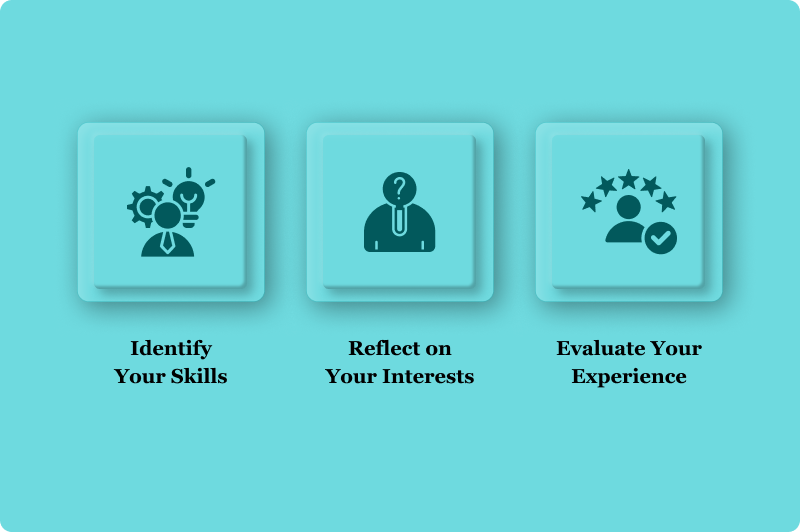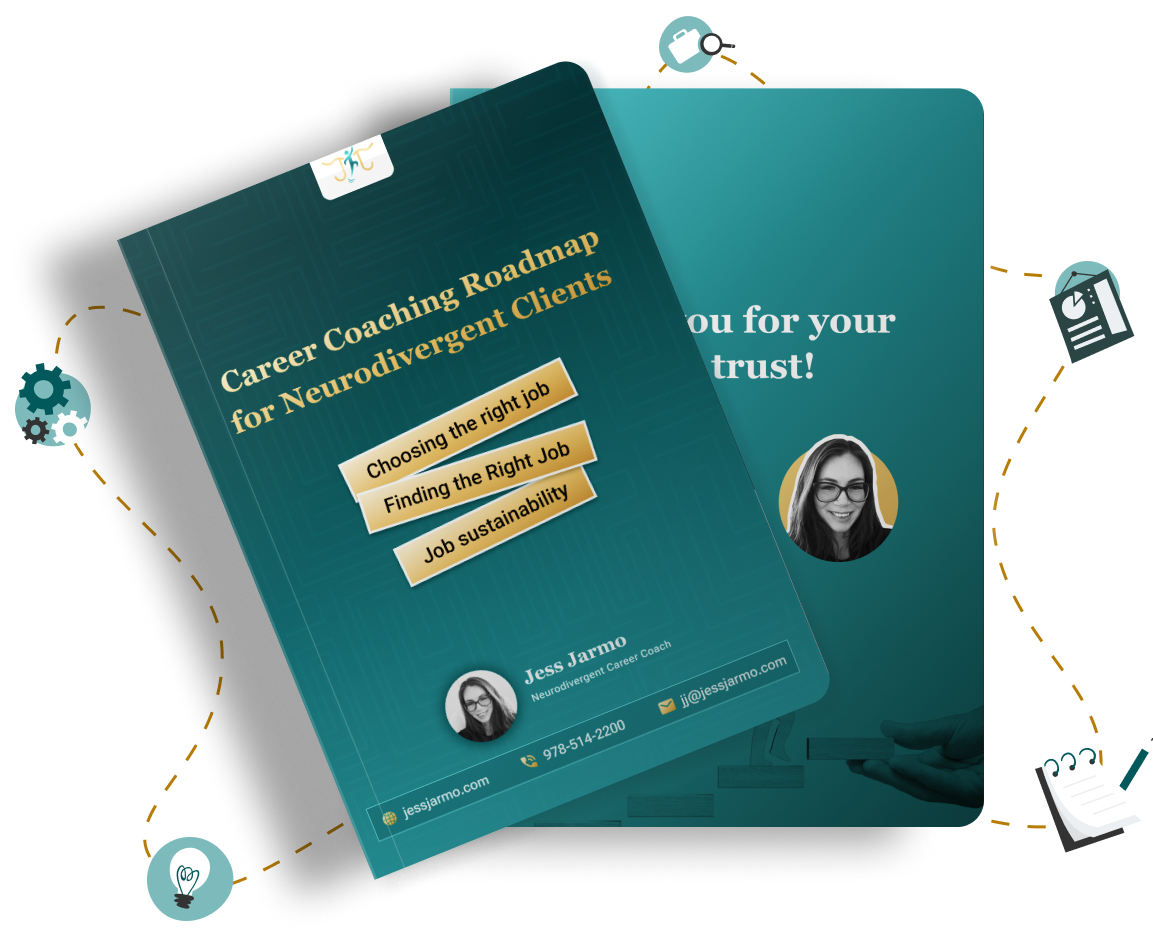

Table Of Content
Introduction
Choosing and applying for the right job can feel overwhelming, especially if you're unsure about your qualifications or how to find the perfect fit. As a neurodivergent career coach, I understand the unique challenges that neurodivergent individuals face in navigating the job market. This guide is designed to help you confidently assess your qualifications, bridge any gaps, and apply for jobs that align with your career goals.
Whether you're exploring new career paths, refining your job search strategies, or seeking advice on resume writing and interview preparation, this step-by-step guide will provide you with the tools and confidence you need to take the next step in your career journey.
Self-Assessment: Evaluating Your Skills, Interests, and Experience
The first step in choosing the right job is understanding yourself. Self-assessment is a powerful tool that helps you evaluate your skills, interests, and experiences, allowing you to identify the types of jobs that align with your strengths and passions.
How to Conduct a Self-Assessment

- Identify Your Skills: List both hard skills (technical abilities, certifications) and soft skills (communication, teamwork). Consider asking colleagues or friends for feedback on your strengths.
- Reflect on Your Interests: What activities or tasks do you enjoy? Consider the type of work environment that suits you best (e.g., remote work, collaborative settings).
- Evaluate Your Experience: Review your past roles and achievements. What were your responsibilities, and how did you contribute to the team or organization?
By conducting a thorough self-assessment, you’ll have a clearer understanding of what you’re looking for in a job and what you can offer potential employers. For neurodivergent individuals, it’s also important to consider how your neurodivergence influences your work style and preferences
Understanding Job Descriptions: Decoding Job Postings
Job descriptions can sometimes feel like a foreign language. Learning how to decode them is crucial in determining whether a job is the right fit for you and whether you meet the qualifications.
Key Components of a Job Description
- Job Title and Summary: Understand the main responsibilities and scope of the role. Compare this with your skills and experience to see if it aligns.
- Required Qualifications: Look for essential qualifications (e.g., specific degrees, certifications) and desirable qualifications (e.g., certain years of experience). Don’t be discouraged if you don’t meet every criterion; focus on what you do bring to the table.
- Skills and Competencies: Identify the key skills needed for the role. Do they match your strengths? If there are gaps, consider how you might bridge them (more on this below).
- Company Culture and Values: Research the company’s values and culture. Do they align with your own? For neurodivergent individuals, finding a workplace that supports diversity and inclusion is particularly important.
Bridging Gaps: Addressing Skill or Experience Shortfalls
It’s common to come across job postings where you don’t meet every requirement. Instead of dismissing these opportunities, consider how you can bridge the gaps.
Strategies for Bridging Gaps
- Further Education or Training: Identify areas where you lack experience and seek out courses, certifications, or workshops to build your skills.
- Leverage Transferable Skills: Highlight how your existing skills can be applied to the role, even if they weren’t gained in a traditional setting.
- Gain Experience Through Volunteering or Freelancing: Consider taking on freelance work or volunteering in a role that allows you to develop the necessary skills.
Building Confidence: Applying Even When You Don’t Meet Every Qualification
It’s easy to feel discouraged when you don’t meet all the qualifications for a job, but remember that job postings often list an ideal candidate. Employers understand that not every applicant will check every box.

Tips for Building Confidence
- Focus on Your Strengths: Emphasize the skills and experiences you do have. Use your resume and cover letter to tell a compelling story about how you can add value to the organization.
- Mindset Shift: Instead of focusing on what you lack, concentrate on what you bring to the table. Your unique perspective as a neurodivergent individual is a strength.
- Practice Positive Self-Talk: Challenge negative thoughts and replace them with positive affirmations. For example, instead of thinking, "I’m not qualified," tell yourself, "I have valuable skills and experience to offer."
Seeking Support: Utilizing Career Coaching, Networking, and Mentorship
You don’t have to navigate the job search process alone. Seeking support from career coaches, networking, and mentors can provide valuable guidance and insights.
How to Get Support
- Career Coaching: A neurodivergent career coach can help you identify your strengths, refine your job search strategies, and prepare for interviews. They can also assist with navigating workplace accommodations and advocating for your needs.
- Networking: Connect with professionals in your desired industry. Attend networking events, join relevant LinkedIn groups, and reach out to connections for informational interviews.
- Mentorship: Find a mentor who can provide advice and support as you navigate your career path. A mentor can offer valuable insights into your industry and help you develop the skills needed to succeed.
Conclusion
Choosing and applying for the right job is a journey that requires self-assessment, confidence, and support. By understanding your strengths, decoding job descriptions, bridging gaps in your qualifications, and seeking the right support, you can confidently take the next step in your career.
Remember, you don’t have to meet every qualification to apply for a job. Employers value unique perspectives and diverse experiences. Your neurodivergence is a strength that can set you apart and add value to any organization.

